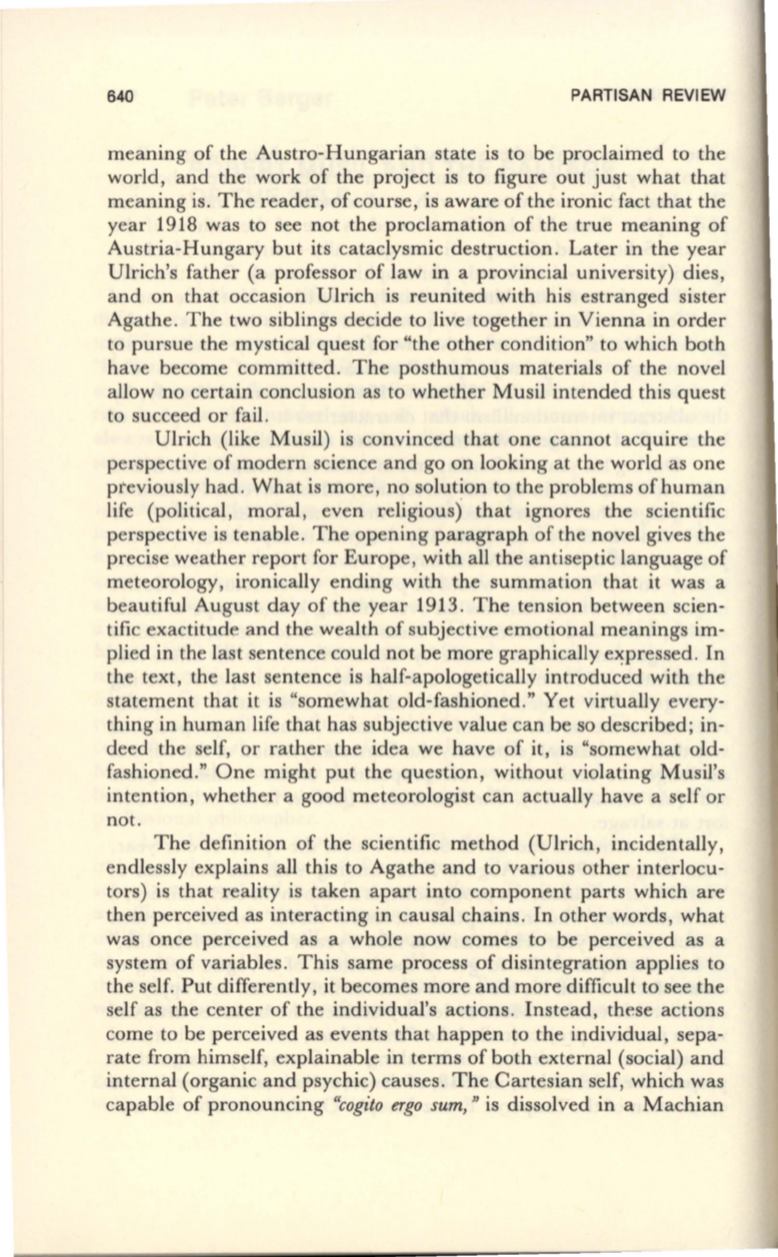
640
PARTISAN REVIEW
meaning of the Austro-Hungarian state is to be proclaimed to the
world, and the work of the project is to figure out just what that
meaning is. The reader, of course, is aware of the ironic fact that the
year 1918 was to see not the proclamation of the true meaning of
Austria-Hungary but its cataclysmic destruction. Later in the year
Ulrich's father (a professor of law in a provincial university) dies,
and on that occasion Ulrich is reunited with his estranged sister
Agathe. The two siblings decide to live together in Vienna in order
to pursue the mystical quest for "the other condition" to which both
have become committed. The posthumous materials of the novel
allow no certain conclusion as to whether Musil intended this quest
to succeed or fail.
Ulrich (like Musil) is convinced that one cannot acquire the
perspective of modern science and go on looking at the world as one
pteviously had. What is more, no solution to the problems of human
life (political, moral, even religious) that ignores the scientific
perspective is tenable. The opening paragraph of the novel gives the
precise weather report for Europe, with all the antiseptic language of
meteorology, ironically ending with the summation that it was a
beautiful August day of the year 1913. The tension between scien–
tific exactitude and the wealth of subjective emotional meanings im–
plied in the last sentence could not be more graphically
e~pressed.
In
the text, the last sentence is half-apologetically introduced with the
statement that it is "somewhat old-fashioned." Yet virtually every–
thing in human life that has subjective value can be so described; in–
deed the self, or rather the idea we have of it, is "somewhat old–
fashioned." One might put the question, without violating Musil's
intention, whether a good meteorologist can actually have a self or
not.
The definition of the scientific method (Ulrich, incidentally,
endlessly explains all this to Agathe and to various other interlocu–
tors) is that reality is taken apart into component parts which are
then perceived as interacting in causal chains. In other words, what
was once perceived as a whole now comes to be perceived as a
system of variables. This same process of disintegration applies to
the self. Put differently, it becomes more and more difficult to see the
self as the center of the individual's actions. Instead, these actions
come to be perceived as events that happen to the individual, sepa–
rate from himself, explainable in terms of both external (social) and
internal (organic and psychic) causes. The Cartesian self, which was
capable of pronouncing
"cogito ergo sum,"
is dissolved in a Machian


